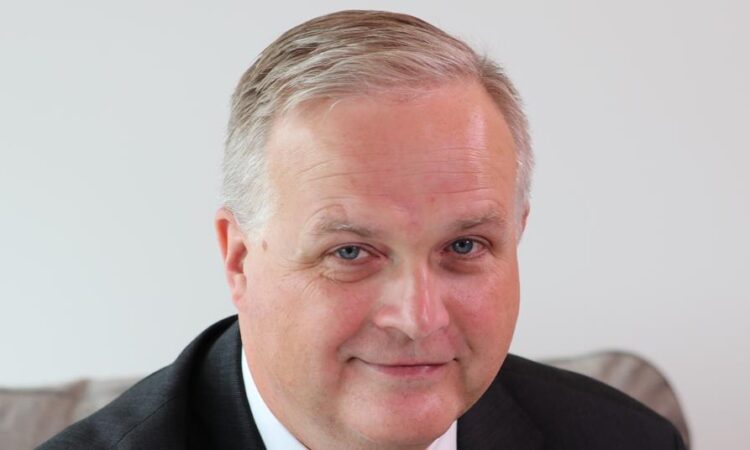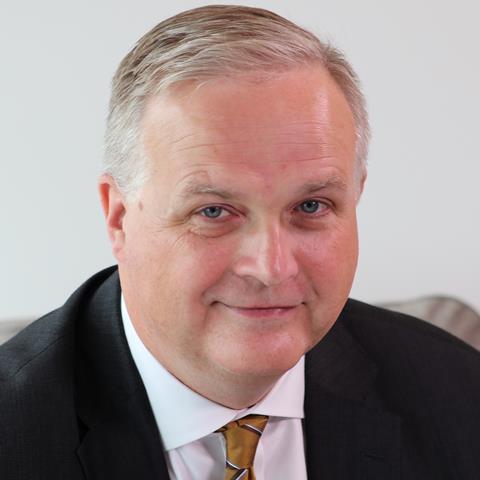
EUAN MUNRO

- CEO Newton Investment Management: 2021-
- CEO, Aviva Investors: January 2014-21
- Previously global head of multi-asset investing and fixed income, Standard Life Investments
NEWTON
- Location: London
- AUM: £89.7bn (€104.2bn, 30.6.22)
- Capabilities: Active equity; income; absolute return; multi-asset
Munro, following a stint as CEO of Aviva Investors from 2014, joined Newton Investment Management as CEO in early 2021 to oversee an internal reorganisation and merger that rationalised BNY Mellon’s asset management capabilities, in most cases under the Newton, Insight and Walter Scott brands.
This process transformed Newton, previously a UK-focused fundamental equities house, roughly doubling AUM to around £90bn as of mid-2022. AUM is now split between the US and non-US, which is in practice still heavily UK-focused.
The merger brought Newton greater research capability in the US, but quant and multi-asset strategies look set to play an important role in the expanded firm. A key London-based hire was the appointment early in 2022 of Mitesh Sheth, former Reddington CEO, as multi-asset investment chief.
Munro sees strong potential in the Dynamic US Equity strategy, which is in fact an overlay-based quant multi-asset strategy with exposure to equities and bonds.
Leverage is set at a maximum 150% with an objective to offer equity alpha with the lower volatility of a classically diversified portfolio. This is highly scalable and essentially applicable to any liquid index. The CEO thinks this platform could transform the fortunes of the enlarged Newton.
“The quant team came as part of the deal and I was intrigued as to how they could enrich the product set that we bring,” Munro says, pointing to the enhanced research capability. But the transfer of knowledge and added value has not been one way, as he is also keen to point out.
As well as fundamental capabilities, the UK side also brought sustainability expertise, with a 20-strong team, as well as a deep-dive team of investigators that can dig into individual stock stories. Munro also sees Newton as an expert in partnering, in particular as a high-conviction equity specialist that can offer large institutional clients a distinctive investment perspective.
“We can triangulate on an investment problem from a lot of different angles – fundamental, quantitative, sustainable, investigative.”
One focus in Europe is to introduce a new range of funds for defined contribution (DC) pensions in the UK. This is a highly competitive but growing market, thanks to the success of the auto-enrolment programme.
While master trusts dominate some of the workplace pension landscape and the market is set to grow from around £80bn now to over £400bn by 2026, according to the consultancy Hymans Robertson, there is potential to leverage distribution power in the highly fragmented and inefficient corporate pension market, where there are more than 27,000 DC schemes.
Despite plans to relax the 75bps charge cap for UK auto-enrolment default funds, the UK’s DC market looks set to remain highly competitive on costs, and Munro acknowledges the need for “scalable alpha”.
He welcomes the relaxation of the charge cap, believing UK workplace pensions are sold on a model that virtually guarantees that the least affluent in society are effectively limited to index fund investments – with no responsibility in the system for downside protection. “Wealthy people … [have] more diversified portfolios, and I just don’t think that’s fair.”
Diversification
Unlike some competitors in the DC space, such as Aviva Investors or Legal & General Investment Managers, Newton is not an originator of illiquid assets (having no hungry annuity book to feed with a pipeline of investments that could potentially be channelled to DC savers).
This means diversification from mainstream assets is limited, although the UK’s rich listed investment trust sector offers potential – in the case of one Newton strategy via UK offshore wind, music rights and an activist hedge fund.
Munro is sceptical of some areas of private markets, which he believes might offer UK pension scheme members exposure at the wrong moment. He is concerned about areas like private equity in particular, which do not offer a reliable income stream and where valuations may be stretched. He says: “I wouldn’t like them coming to DC customers at the wrong time, at the wrong price and on the wrong fee basis.
“I think there’s quite a bubble in private assets and I wouldn’t want to see that foisted on a market that’s maybe not quite ready to deliver the scrutiny that’s necessary.”
Human intervention
Munro concludes that a combination of quant and human-based investment inputs give asset allocators an advantage, with the ability of human brain power to challenge and override the quant-based input.
A case in point – and one which will no doubt enter the textbooks at some point – is the way in which static equity/bond index portfolios were not able to take interest rate risk into account at a time when all evidence was pointing to rising rates and bond portfolio volatility.
Munro says: “I think the circumstances where humans are more important, are at boundary conditions, points where markets are at an inflection, so it doesn’t surprise me that some of the quantitative strategies have not dealt as well with the change in direction of interest rates.
“By definition, quantitative strategies look at the past and indices are ossification of the past as well. So all this passive money is essentially a bet that the future will look something like the past. I think it wasn’t that difficult for an informed human to see that interest rates were going to change direction.”
Whereas quant models take time to assess evidence, humans can spot the turning of the tide more easily – so by early 2022 it became clear that central banks were going to have difficulty controlling inflation, and that the future would not look like the recent past.
“I think that’s something humans can arrive at relatively quickly, where a quant model will need to gather the evidence. It will take time, and in that time when it’s reframing its view of the world you might be losing money because your bets are based on historic experience, which is not a good reliable guide to the future.
“So the combination of humans and quantitative, which is what we now have, I think will be the secret to sustainable, long-term performance.”






